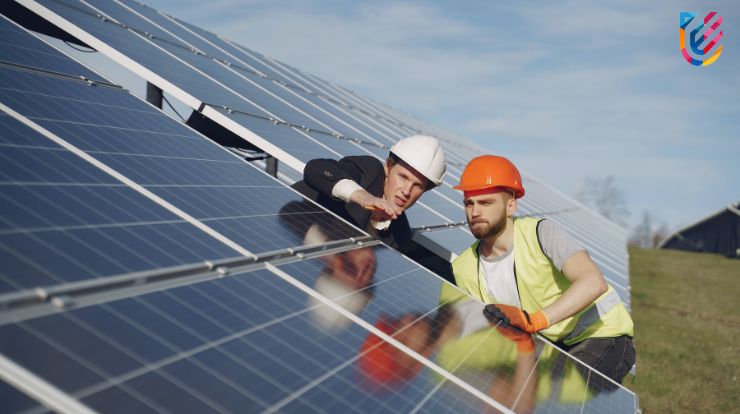Production Operations: Optimizing Output from Oil and Gas Wells

Oil and Gas Production Operations are complex processes that involve various stages, from reservoir analysis to production monitoring. To maximize profitability and assure sustainable operations, oil, and well gas output must be optimized. The main facets of oil and gas production operations will be covered as maximizing well production.
Production Process in an Oil Well
The production process in an oil well involves several stages of well production optimization to ensure maximum oil recovery.

These stages involve oil extraction from the reservoir using primary, secondary, and tertiary recovery techniques. Standard well equipment and designs are also employed to streamline the production process.
To find areas for improvement and attain the best output, it is critical to comprehend the oil well production process.
Reservoir Analysis
Reservoir analysis is critical to optimizing output from oil and gas wells.
To better comprehend the characteristics and behavior of the reservoir, reservoir characterization, modeling, and simulation are used. To increase production, these analyses assist in determining the most practical and efficient recovery techniques.
Operators can maximize wellbore design, drilling procedures, and completion techniques to ensure the highest output from the well by having a thorough grasp of the reservoir.
Production Optimization
The first question that comes to our mind is What is production optimization in oil and gas? Production optimization in Petroleum sector maximizes the yield and efficiency of oil and gas wells.

Artificial Lift Techniques
The flow of oil and gas to the surface is increased using artificial lift techniques. Artificial lift methods include gas lifts and rod pumps.
While choosing an artificial lift technique, it is essential to consider fluid parameters, production rates, and reservoir characteristics.
Well Stimulation Methods
The permeability of the reservoir is increased, which enhances oil and gas recovery using well-stimulation techniques, including acidizing and hydraulic fracturing.
While choosing a well-stimulation approach, it is essential to consider the fluid’s qualities, the rock’s, and the reservoir pressure.
Surface Facilities Optimization
Managing and planning production facilities for maximum efficiency and minimal downtime is known as surface facilities optimization.
Well flow rates, fluid characteristics, and environmental laws are essential factors to consider when optimizing surface facilities.
Production Monitoring
Production monitoring involves continuously measuring and analyzing well productivity to identify and address issues that may impact production.
Real-Time Monitoring
Operators have immediate access to well-production data thanks to real-time monitoring, which enables them to react to changes and maximize production.
Real-time monitoring uses several technologies, such as downhole cameras, flow meters, and pressure and temperature sensors.
Data Analysis
Identifying trends and patterns in production data enables operators to make well optimization decisions.
Statistical analysis, data visualization, and machine learning algorithms are some tools and methods utilized for data analysis.

Production Forecasting
Production forecasting involves using historical production data to predict future well productivity.
Production forecasting enables operators to make well-informed optimization decisions, anticipate potential problems, and prepare for future production levels.
Health, Safety, and Environmental (HSE) Considerations
In addition to optimizing output from oil and gas well completion, health, safety, and environmental (HSE) considerations must also be a top priority for operators.
Both workers and the environment are significantly at risk in the oil and gas sector. Therefore, HSE concerns must be incorporated into every oil and gas production process phase.
Ensuring safety precautions are in place to safeguard employees from mishaps like falls, explosions, and fires is one of the HSE issues. Operators must also ensure they follow all applicable environmental laws and have policies to lessen their adverse effects on the environment.
Risk assessment, hazard identification, and control strategies are essential to effective HSE management. Operators in the oil and gas sector are subject to stringent rules to maintain their activities’ safety and environmental responsibility.
Operators must implement strict safety procedures and environmental management systems to reduce risk to employees and the environment. These initiatives, training curricula, and emergency response plans should be part of ongoing safety audits.
Operations for oil and gas production must include HSE considerations as a core component. Operators must put worker safety and environmental responsibility first to ensure their businesses are sustainable and socially responsible.
Conclusion
Oil and gas well output must be optimized to maximize profitability and assure sustainable operations. Reservoir analysis, production optimization, and monitoring are crucial to get the most out of a well. As technology advances, operators can use optimizing oil and gas with AI production further.
Operators may better judge well optimization by utilizing AI technologies like machine learning and data analytics, boosting productivity and profitability. New technology and methods will develop to aid in improving the productivity and efficiency of wells as the oil and gas sector continues to grow.
Recommended Blogs

7 Surprising Benefits of an MBA in Oil and Gas Management
An MBA in Oil and Gas Management helps you advance your career with Leadership Skills, Networking, Global Knowledge, Professional Growth.
Read MoreMar 15, 2024 I 2 minutes
45+ Business Development Interview Qs! (Basic, Concepts, Tech)
Master your Business Development interview prep with 45 most asked questions for freshers, experienced & techies. New Questions updated!
Read MoreFeb 16, 2024 I 10 minutes
Introduction to Renewable Energy Management: What You Need To Know
Discover what is renewable energy management, its importance to the world and the key aspects of managing these energy sources.
Read MoreJan 20, 2023 I 2 minutes
Ace Your Data Governance Interview with these 55 Question Types
Master 55 data governance interview Questions, from data lineage puzzles to AI challenges. Sharpen your skills & land your dream data role.
Read MoreJan 21, 2024 I 15 minutes


